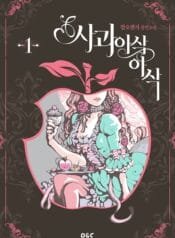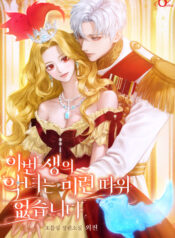Chapter 9 – Part 1
Oliver could never have known what awaited him in the future.
That the flower shop he cherished and loved so much would crumble under the deceitful words of others.
Even if Kristin knew what was to come, she couldn’t tell him how Elena and Rose would ruin his life and that of his sister. Nor could she reveal that Lenci, who loved and supported her brother’s flower shop, would be speechless from the shock.
Kristin looked at Lenci, whose eyes were wide with surprise, and asked,
“Can I tell him what happened at the estate? It might upset him, but he needs to know.”
“My Lady, I’ve never told my brother about what goes on at the estate. If he finds out…” Lenci hesitated.
Lenci had never shared the details of her time at the Edith estate with her brother. If she had, he might have asked her to leave and work with him at the flower shop.
But Lenci, who had received so much help from her brother, wanted to prove she could work on her own.
She also loved Kristin dearly and didn’t want to leave her, despite the mistreatment from Rose. She knew that leaving the estate would mean not seeing Kristin anymore.
So, she had kept silent. But now Kristin wanted to speak, leaving Lenci conflicted.
“Please tell me what’s been going on. I thought Lenci was doing well. I tried to stop her when she wanted to work at the Edith estate at such a young age. I told her I would earn money, so she didn’t need to work. But she insisted, so I let her go.”
Kristin began, “My stepmother and my stepsister prefer servants who obey them. Lenci is devoted to me, so my stepmother resents even the bread Lenci eats. She likely tormented Lenci even when I wasn’t around.”
“Did she say the bread was too good for her? Even servants need to eat!”
Oliver’s face hardened with shock and anger, his knuckles whitening as he clenched his fists.
“Elena constantly compared herself to Lenci and belittled her. I intervened when I could, but they even dismissed my authority. That’s the kind of people they are.”
Oliver and Lenci were orphans. After losing their parents, they had to fend for themselves. Both gave up the chance to attend the academy for commoners, instead starting work at a young age. Education wasn’t their choice to abandon; it was a necessity for survival.
“Without Lenci by my side during the six years since my mother passed, I don’t know how I would have coped with all the abuse from my stepmother and sister. Lenci has worked diligently as a maid but hasn’t been properly compensated.”
“I never imagined Lenci was treated so poorly. Knowing she endured such abuse while working fills me with regret. I feel like a fool for not realizing sooner.”
Kristin gently patted Oliver’s shoulder as he bowed his head in despair.
“She’s had a tough life, but I don’t want that for her anymore. You don’t want her to keep living like this, do you?”
“I’ve been running the flower shop to take care of Lenci and haven’t taken a day off, even on weekends.”
“I’ll protect Lenci however I can. But you need to earn enough or move up to a better position so that she doesn’t have to work anymore. If she doesn’t need to earn money, she has no reason to stay at the Edith estate. And at seventeen, it’s not too late for her to start studying again.”
In the case of nobles, Kristin had attended the noble academy from the age of eight and graduated at the age of fifteen.
Noblewomen in the Union Empire were able to learn basic etiquette, history, and humanities at the academy.
The Emperor established an academy exclusively for noblewomen, insisting they receive the same education as noblemen.
His decree also allowed commoners with a desire to learn to attend the academy, supported by the Empire.
Although the nobles thought it was a waste of their tax to allow commoners to attend the academy, some bright commoners graduated at the top of their class and secured positions within Imperial institutions.
Lenci had often admired the academy certificate in Kristin’s room.
“What is the academy like?” she would ask.
“I’ve heard of the academy for commoners, but I’ve never seen it.”
“I’ve never really studied properly before, so I wonder how it would feel if I did.”
Kristin often felt sorry for Lenci when she heard her say things like this. But she had no control over the Edith family’s finances or Lenci’s life as a servant, so all she could do was listen.
Kristin turned to Oliver and continued,
“Lenci has a passion for learning, and with a proper education at the academy, she could even get a job within the Empire’s institutions. Although she’s seventeen, there are academies for older students. If she attends one, she can live a life of her own, not as a servant.”
“…I’m worried it might cost a lot, though,” Oliver admitted.
He knew that while academy education was subsidized, it still required some fees, which could be burdensome given his current financial situation running the flower shop.
“If you could take on the role of manager at the Levi Mine for a few years, I will cover all of Lenci’s academy expenses. The salary will be comparable to that of a civil servant. I’m not asking you to give up the flower shop entirely,” Kristin offered.
“My Lady, you don’t need to go that far. I’m content just being a servant,” Lenci interjected.
“Lenci, if I can be of help, I want to support you and your brother to live a happier life than you do now,” Kristin replied gently.
Oliver, realizing the gravity of the offer and his sister’s potential, spoke,
“If I take on the role at the mine, can Lenci truly have a different life?”
“I promise,” Kristin nodded firmly.
Unlike the other servants working in the mansion, Lenci enjoyed reading picture books in a corner after her work was done.
With Lenci’s love for books, she would surely excel academically at the academy.
Until now, servants like Lenci had rarely had the opportunity to fully read and write.
While some servants showed no interest, Lenci was a child who was curious about studying.
Moreover, the nobles openly looked down on servants who couldn’t read and write, so Kristin wanted Lenci to escape that life.
Kristin continued, “Please ensure Lenci doesn’t have to live a life of being belittled. From what I’ve seen, she’ll do well at the academy.”
Looking into Kristin’s eyes, Oliver nodded.
“Then I’ll do as you’ve suggested.”
“Good decision. I’ll also find an institution where you can receive training about the mine,”
Kristin looked at Lenci and continued.
“I’m so glad, Lenci. Now you can go to the academy and study.”
Lenci beamed at Kristin, “It feels like a dream. I’ll study hard so that I won’t disappoint you and my brother.”
Oliver smiled too, seeing his sister’s joy.
* * *
As Kristin left Oliver’s flower shop, she had one more request. She asked him to close the shop during the debutante ball. This was to prevent Rose and Elena from having an excuse to use his shop.
By now, Rose and Elena were likely waiting at the estate for Kristin and Lenci to return with flowers from the shop.
They were most likely enjoying plotting their schemes against them.
While they had their plans to trick them, Kristin didn’t want to play into their schemes.
Oliver was taken aback by Kristin’s request to close the shop for three days.
The debutante ball was a time of high demand for flowers, a period that flower shops looked forward to all year. He had likely been eagerly awaiting this peak season as well.
In the Union Empire, the debutante ball lasted three days.
The first day introduced new young nobles to society. The second day allowed nobles to tour approved locations in the Imperial Palace.
The final day featured gifts from the emperor and empress—as a congratulatory gift to the nobles who would lead the empire’s future, the younger ones were given perfume, and the older ones were given daggers bearing the emblem of the Union Empire.
These were all provided by Emperor Lucas and Empress Leli Aedon.
The nobles treasured these gifts like precious heirlooms of their families and the princesses and princes who would debut the next year eagerly anticipated receiving such gifts.
The debutante ball, held in October, was one of the season’s major events, with its pleasant weather ideal for parties. Nobles often hosted tea parties at their estates following the palace events.






